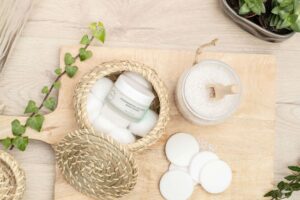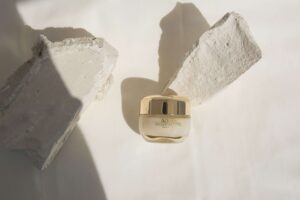Answering Your Most Pressing Questions about Natural Skincare

In an era where consumers are increasingly conscious of the ingredients they put on their skin, the clean beauty movement has gained momentum, championing transparency, sustainability, and efficacy. However, navigating the world of natural skincare can be daunting, with a myriad of questions surrounding ingredients, formulations, and efficacy. To shed light on this topic, we’ve compiled a comprehensive Q&A addressing some of the most pressing questions about clean beauty and natural skincare.
Q: What exactly is clean beauty, and how does it differ from conventional beauty products?
A: Clean beauty refers to skincare and cosmetic products formulated with safe, non-toxic ingredients and free from potentially harmful additives such as parabens, phthalates, sulfates, and synthetic fragrances. Unlike conventional beauty products, which may contain a host of synthetic chemicals and additives, clean beauty products prioritize purity, transparency, and environmental responsibility.
Q: Are natural skincare products effective?
A: Yes, natural skincare products can be highly effective, depending on the quality and concentration of their ingredients. Many natural ingredients, such as botanical extracts, plant oils, and herbal remedies, offer a wealth of benefits for the skin, including hydration, antioxidant protection, and anti-inflammatory properties. Additionally, natural skincare products often avoid harsh chemicals and additives that may cause irritation or adverse reactions, making them suitable for sensitive skin types.
Q: How can I identify clean beauty products?
A: Look for products labeled as “clean,” “natural,” or “organic,” although it’s important to note that these terms are not regulated and may vary in their definitions. Additionally, certifications from reputable organizations such as the USDA Organic seal, EWG Verified mark, or Leaping Bunny certification for cruelty-free products can provide assurance of a product’s cleanliness and ethical sourcing.
Q: Are clean beauty products suitable for all skin types?
A: Yes, clean beauty products are generally suitable for all skin types, including sensitive, oily, dry, and combination skin. However, it’s essential to choose products formulated to address your specific skincare concerns and preferences. For example, individuals with sensitive skin may benefit from fragrance-free or hypoallergenic formulations, while those with oily skin may gravitate towards lightweight, non-comedogenic products.
Q: Are there any drawbacks to using natural skincare products?
A: While natural skincare products offer numerous benefits, they may not be suitable for everyone or every skin concern. Some individuals may experience allergic reactions or sensitivities to certain natural ingredients, such as essential oils or botanical extracts. Additionally, natural skincare products may have a shorter shelf life compared to their conventional counterparts due to the absence of synthetic preservatives. It’s essential to patch-test new products and monitor your skin’s reaction before incorporating them into your routine.
Q: Can natural skincare products help with specific skin concerns, such as acne or aging?
A: Yes, natural skincare products can be effective in addressing a wide range of skin concerns, including acne, aging, hyperpigmentation, and sensitivity. Ingredients such as salicylic acid, tea tree oil, niacinamide, and vitamin C are commonly used in natural skincare formulations to target acne, while antioxidants, peptides, and hyaluronic acid are favored for their anti-aging properties. It’s important to choose products formulated with ingredients tailored to your specific skin concerns and goals.
Q: Are natural skincare products more sustainable than conventional products?
A: In many cases, yes. Natural skincare products often prioritize sustainability and environmental responsibility, using eco-friendly packaging, ethically sourced ingredients, and minimizing waste throughout the production process. Additionally, some natural skincare brands support initiatives such as regenerative agriculture, carbon offsetting, and plastic-free packaging, further reducing their environmental impact.

Q: How can I transition to a clean beauty routine?
A: Transitioning to a clean beauty routine can be a gradual process. Start by replacing one or two conventional products with clean alternatives and gradually incorporate more natural skincare and cosmetic products into your routine over time. Research brands, read ingredient lists, and experiment with different formulations to find what works best for your skin. Remember that everyone’s skincare journey is unique, so be patient and listen to your skin’s needs along the way.
Navigating the world of clean beauty and natural skincare can be empowering and rewarding, but it’s essential to arm yourself with knowledge and ask questions along the way. By understanding the principles of clean beauty, identifying effective natural skincare products, and choosing formulations tailored to your skin’s needs, you can embark on a journey towards healthier, happier skin. Whether you’re concerned about ingredients, efficacy, or sustainability, there’s a wealth of resources and options available to support your clean beauty journey.




